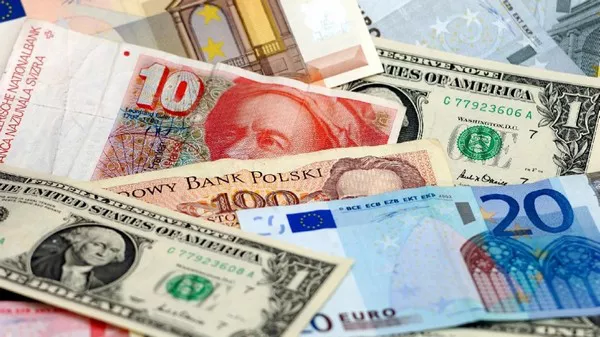In the intricate world of global finance, currency exchange rates play a pivotal role in shaping economic landscapes and influencing international trade. Among the myriad of currency pairs, the exchange rate between the Swiss Franc (CHF) and the Japanese Yen (JPY) is closely monitored by investors, businesses, and policymakers alike. As we delve into the dynamics of the CHF/JPY exchange rate, we seek to unravel the factors influencing this pairing and gain insights into its current standing in the ever-evolving global financial markets.
Understanding CHF and JPY: An Overview
Before delving into the current exchange rate scenario, let’s briefly understand the two currencies involved – the Swiss Franc (CHF) and the Japanese Yen (JPY). The CHF is the official currency of Switzerland and Liechtenstein, known for its stability and prudent fiscal policies. On the other hand, the JPY is the currency of Japan, a major economic powerhouse in the Asian region. Both currencies have distinct economic indicators and policies that contribute to their respective strengths.
What Is CHF in JPY? The Current Exchange Rate
As of the latest data available, the exchange rate for CHF in JPY stands at 169.95. This numeric representation is crucial for businesses engaged in international trade, investors seeking opportunities in foreign markets, and policymakers aiming to formulate effective economic strategies. Understanding this rate is essential for anyone involved in cross-border transactions or interested in the economic dynamics between Switzerland and Japan.
Factors Influencing CHF/JPY Exchange Rate
Several factors contribute to the fluctuations in the CHF/JPY exchange rate. Analyzing these elements provides a comprehensive perspective on the dynamics shaping the value of the Swiss Franc against the Japanese Yen.
1. Economic Indicators
Economic indicators such as GDP growth, inflation rates, and employment figures in both Switzerland and Japan significantly impact the CHF/JPY exchange rate. Positive economic indicators typically strengthen a currency, leading to an increase in its exchange rate.
2. Interest Rates
Central banks play a crucial role in influencing exchange rates through their monetary policies. Interest rate differentials between the Swiss National Bank (SNB) and the Bank of Japan (BoJ) can impact the attractiveness of the CHF and JPY for investors.
See Also:Why Doesn’t Switzerland Use the Euro
3. Trade Balances
Trade balances between Switzerland and Japan influence the demand for each other’s currencies. A trade surplus in Switzerland could increase demand for the CHF, affecting its exchange rate against the JPY.
4. Political Stability
Political stability is a key factor influencing investor confidence. Any political uncertainty in Switzerland or Japan can lead to fluctuations in the CHF/JPY exchange rate.
5. Market Sentiment
Investor sentiment and perceptions about the global economic environment can impact the CHF/JPY exchange rate. Economic uncertainty or geopolitical tensions may lead investors to seek refuge in safe-haven currencies, affecting the Swiss Franc.
6. Global Economic Conditions
The overall health of the global economy also plays a role in determining the CHF/JPY exchange rate. Economic crises or strong economic performances in major economies can have spillover effects on this currency pair.
7. Central Bank Interventions
Interventions by central banks, such as currency interventions or changes in monetary policy, can directly impact exchange rates. Both the SNB and BoJ may undertake measures to stabilize their respective currencies.
8. Market Speculation
Traders and investors engaging in speculative activities can lead to short-term fluctuations in the CHF/JPY exchange rate. Market sentiment and speculative movements can sometimes override fundamental economic factors.
9. External Shocks
Unforeseen events, such as natural disasters, pandemics, or geopolitical crises, can have a significant impact on the CHF/JPY exchange rate. These external shocks can disrupt economic activities and influence investor behavior.
10. Technical Analysis
Traders often use technical analysis, examining historical price patterns and trends, to make predictions about future exchange rate movements. Technical indicators can provide insights into potential support and resistance levels for the CHF/JPY pair.
Current Exchange Rate Analysis
Analyzing the current CHF/JPY exchange rate involves considering the interplay of the aforementioned factors. Economic data releases, central bank statements, and global economic conditions must be carefully assessed to make informed predictions about future movements in the exchange rate.
Investors and businesses should keep a close eye on upcoming economic events, such as interest rate decisions, economic reports, and geopolitical developments, as these can trigger significant movements in the CHF/JPY exchange rate. Additionally, diversification strategies and risk management practices are essential for mitigating the impact of exchange rate fluctuations on portfolios and business operations.
In conclusion, the CHF/JPY exchange rate is a complex interplay of economic, political, and market forces. Understanding the dynamics behind this currency pair is crucial for making informed financial decisions in the global marketplace. As we navigate the ever-changing landscape of international finance, staying informed about the current CHF/JPY exchange rate is paramount for individuals and entities engaged in cross-border transactions and investments.
Related Topics:
What Is the Value of the Swiss Franc: A Comprehensive Guide
Why Swiss Franc Is Falling: Discover the Reasons Behind
Swiss Franc Worth: A Comprehensive Overview


























